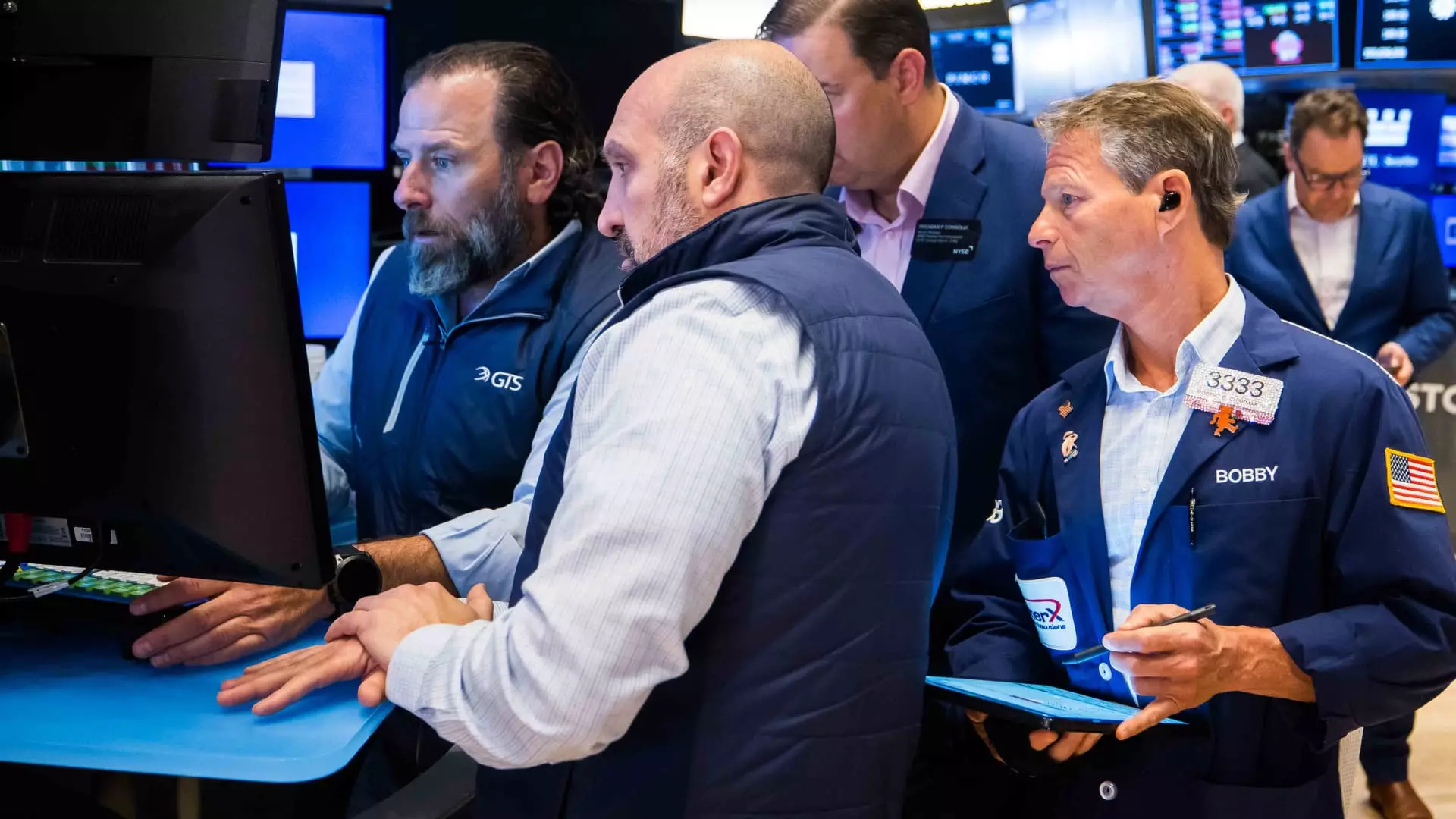Financial markets experienced a dramatic sell-off on Wednesday, igniting fears among investors about the tenuous state of the U.S. economy. The Dow Jones Industrial Average plummeted by a staggering 745 points, marking a 1.7% decline. The S&P 500 and Nasdaq Composite weren’t spared either, losing 1.4% and 1.2%, respectively. This turbulence appears to be driven by soaring Treasury yields, underscoring a widespread anxiety regarding a new budget bill that threatens to exacerbate an already precarious national deficit.
Financial discussions among the general public often swirl around the topics of innovation and entrepreneurship, yet it seems we’re navigating a landscape where fiscal prudence has become a rare commodity. The recent yield on the 30-year Treasury bond hit an unsettling 5.08%, indicating that the market is beginning to lose faith in the government’s ability to stabilize its financial policies. Since when did confidence in our fiscal management come to depend on the whims of legislative compromises?
The Budget Boondoggle
As the political landscape braces itself for the impending debate surrounding the new budget bill, one can’t help but feel a mix of foreboding and outrage. Lawmakers are rumored to reach a compromise regarding state and local tax deductions, but the consequences could be dire. Rather than introducing genuine measures to address the burgeoning deficit, it seems likely that the bill will merely serve to perpetuate fiscal irresponsibility. The notion that we are debating whether to continue raising the debt level at a “slower rate” is laughable and infinitely frustrating.
Even influential financial strategists like Sam Stovall have raised alarm bells, questioning whether the tax bill will do anything meaningful to stem the tide of inflation or curb the national debt. The simple truth is that it appears we are destined to repeat the same mistakes that brought us to this precarious position in the first place. Providing a “band-aid” solution to a systemic wound is not only shortsighted but dangerously irresponsible.
Back to the Status Quo?
Adding to the anxiety is the backdrop of investor sentiment. Recent auctions for long-dated bonds have raised serious concerns about the appetite for financing America’s deficits. The disturbing implication is that investors are beginning to view U.S. debt not as a safe haven, but rather as a sinking ship, a sentiment compounded by the alarming fluctuations in Treasury yields that followed President Trump’s controversial tariffs.
The mere idea that we are oscillating between rapid fiscal expansion and contraction creates tremendous uncertainty—from businesses to individual investors alike. Stock prices, which had previously been buoyed by an air of optimism, are now suffocated by an accumulation of worries. Companies like Target and UnitedHealth saw substantial declines in their stock values, pressured by a combination of declining earnings projections and increasing operational costs stemming from government policies.
The Illusion of Recovery
This drop in stocks comes right on the heels of a brief period of optimism during which the S&P 500 and Nasdaq had enjoyed impressive gains of over 14% and 19% respectively in just the past month. Yet, it begs the question: Was this recovery ever built on solid foundations, or simply a mirage fueled by speculative trading and blind optimism? The tenacity of the market recovery did not account for the fundamental issues lurking beneath the surface—namely, a lack of coherent economic strategy.
As investors, we are oftentimes left with a bitter taste in our mouths as we witness financial gains overshadowed by a looming cloud of uncertainty stemming from political malfeasance. Worries are mounting that the market has moved too far, too quickly, and that it may soon face reckoning. What we need now are not merely reformulations of fiscal strategies or sweeping giveaways; we require a robust framework that delivers tangible solutions for sustainable economic health. The current trajectory makes it painfully clear that we are far from arriving at that ideal.
Each passing day amplifies the urgency for decisive action, not just in terms of policies but in a collective consciousness that understands the gravity of our fiscal dilemmas and refuses to accept anything less than genuine fiscal responsibility.


Leave a Reply